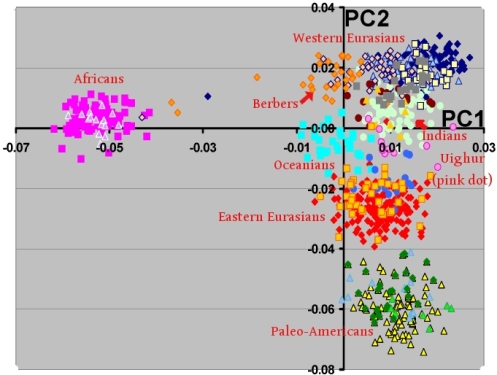One can see how they read the world view using this world view.
The concept of independency and life force is explored here
http://www.hschamberlain.net/arischewel ... dview.html
Houston Stewart Chamberlain
Aryan World-view
Because truth is layn beyond
the reach of the intellect,
we can't use words for it.
(M a h á b h â r a t a)
4
Translation from the German, based upon the 8th edition of
Arische Weltanschauung,
published by F. Bruckmann A.-G., Munich 1938
5
Dedicated to the indologist
Leopold von Schroeder
in admiration and grateful friendship
Index
The idea of humanism 11
Historical overview 14
Paul Deussen 27
The significance of Aryan thinking 33
Characteristics of Aryan thinking 36
Racial purity 37
Buddhism is un-Aryan 42
The thinking of an entire people 47
Organic thinking 51
A-logic thinking 55
The substance of Aryan thinking 59
The shape of Aryan thinking 69
Hellenes and Indo-Aryans 72
Thinking and religion 77
Epilogue 87
Bibliographic supplement 89
The above link is largely reflective of the mindset of various aryanists, like "Savitri Devi" (and Himmler would fit the pattern) who were interested in 'Hinduism' solely "because it must have been the aryan religion, belonging to their (earliest) aryan ancestors", not because of the truths in Hindu scriptures (which they could not recognise nor understand, it was alien to their mind which was so preoccupied with thoughts of racial superiority and could never see that HDharma speaks of elevation of character).
It shows how *they* projected their own ideas onto 'Hinduism' - it is *their* view of the religion. It is no Hindu Dharma of reality, no HDharma any of our kind ever knew.
That's why many racist Europeans - which would then include the nazi - believed Hindu Dharma is aryan (even today, Europeans whose beliefs are centred on IE, claim Mahabharata's Pandavas were Europeans - see Elst - here, look for the name "Peter Brooke" on this page).
From there, the rest of the same sort of nonsense then followed:
http://koenraadelst.bharatvani.org/article...avitriDevi.html
http://koenraadelst.bharatvani.org/article...sm/savitri.html
http://koenraadelst.bharatvani.org/article...h/savitri2.html
For them, it was/is all about blood, about race - about genetics, and about the urheimat, etc. Those are what brings about their initial interest, what their admiration is based on. In their fantasies their ancestors were the originators of Hindu civilisation. Hindus actually need to take note that FOR EUROPE, IT IS MOST CERTAINLY ABOUT RELIGION, since they do regard that language, civilisation are intricately related to religion. (The same motivations among today's western "vedicists/vediks/whatever" - includes not just pseudo-scholars but some indologists).
That is why many a religious reconstructionist movement leading into the nazi-era (like the Thule Society) were racist: they all tended to be *aryan* reconstructionist religions on these lines. This sort of weirdness is there in several reconstructionist movements today. It is their initial conditioning that causes perversions everywhere, even after christianism is abandoned.
The racist indologists who were supposedly interested in Hindu Dharma, therefore never even knew the *Hindu* worldview, which is the ONLY view in which the Gita/all Hindu literature can be read and understood - the only view in which it exists and the only understanding in which its insights and intents are delivered.
Of course, their perverted views on Hindu Dharma says nothing about HDharma itself, but only of the racist motivations driving these motivated western people.
By their great perversion - they started off on the wrong foot itself - they had completely missed everything in the Hindu scriptures; literature which they could only "read" without understanding anything. (Same problem with IE Studies' west reading the Vedas. They will simply not get it. And among those of them who pursue the matter for other reasons, the Gita is dumped as later-day and the Vedas is claimed. But nothing else has changed. The same motivations drives their claims - via IE: *their* ancestors, *their* ancestral right.

